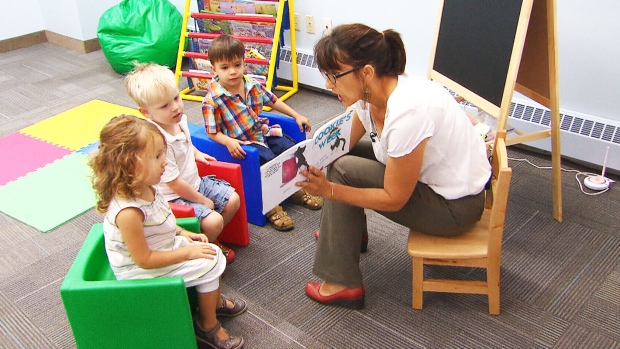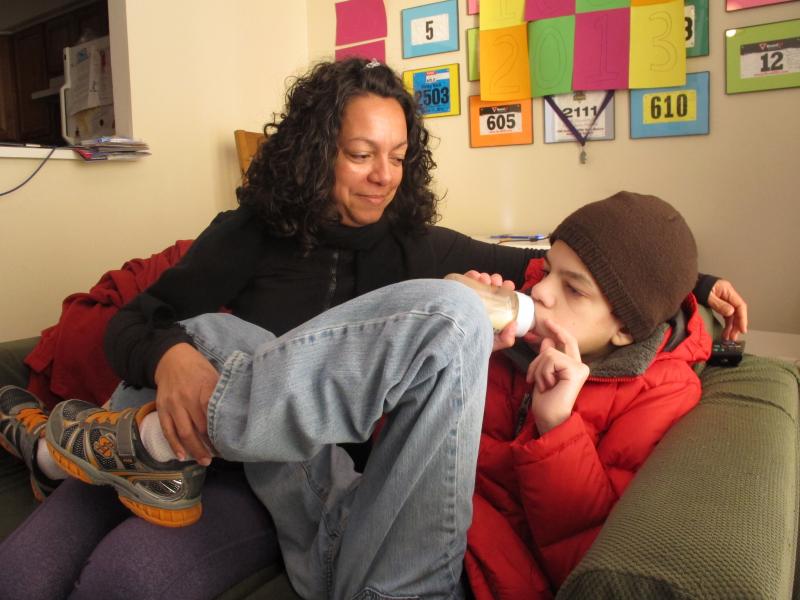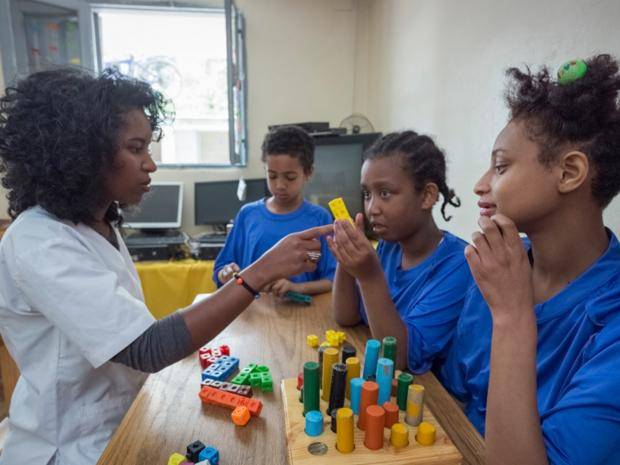Warning: Invalid argument supplied for foreach() in /home1/redcare1/public_html/wp-content/themes/uplift/swift-framework/content/sf-post-formats.php on line 89

The World Health Organization defines Autism spectrum disorders as a group of complex “developmental disorders and conditions that emerge in early childhood and, in most cases, persist throughout the lifespan and are marked by the presence of impaired development in social interaction and communication and a restricted repertoire of activity and interest, with or without accompanying intellectual and language disabilities; and that manifestations of the disorder vary greatly in terms of combinations and levels of severity of symptoms”.
The most obvious signs tend to appear around ages 2 and 3, in a few cases, can be diagnosed as early as 18 months.

There is no one cause of Autism but it is said to be caused by a combination of genetic, biological and environmental factors. There appears to be a pattern of autism or related disabilities in many families, which further supports the theory of a genetic basis for the disorder. While there has been no one gene identified to cause autism, researchers are searching for irregularities in segments of genetic code that children with autism may have inherited.
Some other researchers are investigating the possibility that under certain conditions, a cluster of unstable genes may interfere with brain development, resulting in autism.

Some infections during pregnancy serve as risk factors such as rubella, encephalitis, fragile X syndrome as well as use of cocaine and consumption of alcohol. Some other potential causes of autism include environmental toxins, including heavy metals such as mercury and pesticides. There’s a high probability that people with autism or those at higher risk of developing it are more sensitive than others to these toxins.
Autism cannot be diagnosed by blood test, brain scan or any other form of physical tests. Instead, diagnosis is based on behavior. Diagnostic tools include the Autism Diagnostic Interview-Revised (ADI-R), a semi structured parent interview and the Autism Diagnostic Observation Schedule (ADOS) which uses observation and interaction with the child. A pediatric neuropsychologist is often asked to assess behavior and cognitive skills, both to aid diagnosis and to help recommend educational interventions.
Clinical genetics evaluation are sometimes done when Autism Spectrum Disorder is diagnosed, especially when other symptoms already indicate a genetic cause.

Core autism symptoms include; social interaction deficits, repetitive behaviors, language impairment, lack of empathy and also associated neurological issues such as sleep deficits/disorders, mood disorders, anxiety, ADHD, OCD.
Out of the 135 million established cases of autism worldwide, it is quite disturbing that more than a million children and teenagers suffer from the condition in Nigeria, with a large percentage of them tagged “fools”, “imbeciles” and even “witches” without proper medical help. These superstitious beliefs demand a quick fix as they further compound the problem. Autism is said to be one of the most ignored health issues in the country with a huge lack in diagnosis and management.

Nigerians need to view Autistic persons as being different and not insane, cursed or abnormal because people who have autism find it difficult to act in the ways other portray as “normal”.
Stigma and discrimination associated with the disorder compel most parents to hide their kids in the house in order to “protect” them from ridicule and discrimination in the community. However, this action is quite counter-productive as the child shouldn’t be excluded from the society.
Early diagnosis and therapy is a very important in dealing with autism in children, as a child detected to have autism at 2 years old is way easier to treat compared to a seven year old.

There’s an urgent need for increase in awareness as well increased enlightenment on the disorder, as well as putting up special facilities in place to help tackle the scourge. An increase in enlightenment and awareness campaigns will help a lot of parents detect the disorder in time and thus therapy can commence, and it also educates the society on how to relate with people with the disorder thus making cohabiting and interacting with them easier. This culminates into the society embracing them rather than neglecting and avoiding them which further compounds their issues.
Autism is treatable but not curable.
The goals of treating autistic children are to reduce associated lapses and family distress and to increase the quality of life and functional independence. There’s no single best treatment and treatment is usually tailored according to the child’s needs. Families and educational system are the main resources for treatment.
It is quite disheartening that no special school for autistic persons has been established by the government in Nigeria. The government has ignored autistic persons for too long and need to pay a lot of attention to them. Special schools need to be established for them as a lot of them find it extremely hard to be in the regular school setting as they are usually slow learners, come off as being emotionless and most times prefer to be by themselves.
Autistic people deserve our love, care and patience, they are not abnormal or insane but are just unique.
Adedamola Arogundade, Graduate Intern at Redcare HMO



